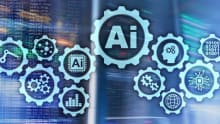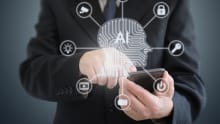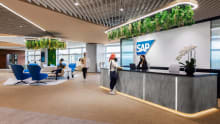AI software, wearable trackers, and robotics tied to worsening worker health: Study

As time progresses, our dependence on AI tools is likely to intensify, as numerous experts assert that artificial intelligence heralds the future. Increasingly, individuals and businesses are endeavouring to seamlessly incorporate AI into their routines, indicating a trajectory where familiarity with AI tools becomes second nature.
Nonetheless, this trend may not necessarily bode well. As reported by The Guardian, findings from a study conducted by the Institute for the Future of Work reveal that the introduction of novel workplace technologies such as trackers, robots, and AI software can have adverse effects on individuals' quality of life.
This comprehensive study, encompassing over 6,000 participants, scrutinised the influence of diverse technologies on overall wellbeing. The research unveiled a direct correlation between heightened exposure to AI-powered software, wearable trackers functioning as surveillance devices, and robotics, and a decline in the health and wellness of employees.
Conversely, the utilisation of conventional information and communication technologies (ICTs) like laptops and instant messaging tended to yield favourable outcomes on an individual's overall health.
While the study refrained from identifying precise causes, it hinted that these technologies could potentially exacerbate job insecurity, augment workload, and diminish autonomy, among other factors. Such circumstances may collectively impact an individual's overall well-being.
There have also been ample studies in the past that suggest that AI will automate many jobs, affecting millions of people in the near future. Many experts have also talked about AI’s impact on the job market. While some say that AI will replace human jobs, others feel that the emerging technology will create more opportunities.
And then there are people who say that AI will actually assist human beings in their jobs and the tech isn’t a threat, but people using AI tools surely are. Circling back to the study, Dr Magdalena Soffia highlighted that the issue isn't necessarily the technologies themselves but how they're implemented.
She said that factors like structural conditions and design play a crucial role in determining the impact on a person’s health. The study utilised a well-established measure of quality of life, which considered factors like mobility, mental health, and pain levels, Soffia added. In addition to this, the study is part of the Pissarides Review into the Future of Work and Wellbeing, conducted by the Institute for the Future of Work in collaboration with Warwick Business School and Imperial College London.










